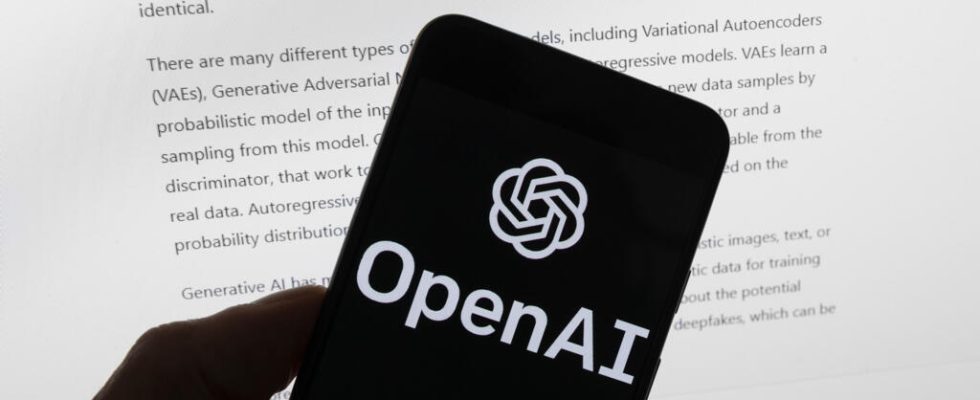This week, The Media Chronicle talks about artificial intelligence at the service of the media with, in particular, the projects announced by the German group Axel Springer in partnership with the Californian start-up Open AI.
The boss of the Axel Springer group, Mathias Dorfner, surprised everyone a little in March by saying that AI would revolutionize the media by replacing journalism, which would have to concentrate on its core business, namely the search for information. news, editorial creation, while everything that is production would become a “by-product”. And now this week, his group ended a partnership with Samsung which allowed it to be present on mobiles with an information aggregator, Upday, to transform it next summer into a “ exclusively AI-driven news trend generator », with zero employees. Two days later, Axel Springer partnered with OpenAI, the creator of ChatGPT, to offer content from its media, Die Welt, Bild, Politico, Business Insider. With a simple idea: when you ask ChatGPT a question, it will answer you with summaries of articles from the group’s database.
ChatGPT will also indicate the sources used with links to the full articles
Transparency and remuneration, with respect for copyright, the agreement ticks all the boxes of future European legislation on AI. Mathias Dorfner even speaks of thus strengthening the “ social relevance » journalism. Its agreement is non-exclusive, which means that the Springer group is the first in a long list of partners in Europe. Because all publishers will want to integrate ChatGPT, and all the better if they are paid for it. But what happens if the media are bypassed by the AI itself, if we go to ChatGPT to get all the information for which we sometimes need investigation, reporting, in short journalism? Also, what happens if the AI provides us with an answer where an alternative truth from Russia Today, for example “Ukrainians are Nazis” becomes a truth?
Yes, this is all that needs to be clarified. And in France, where are the media?
Well, the media uses AI for transcriptions or translations, particularly in videos, and for illustrations too, as long as it is specified that this was done by an AI. It is also used for electoral and sporting results and always with human control. But publishers also seek to ensure that AIs do not train on their backs, that is to say not only without paying them, but by being mixed with any source. ChatGPT, like other robots, has an interest in this, because what makes them valuable is the accuracy of their answers.
